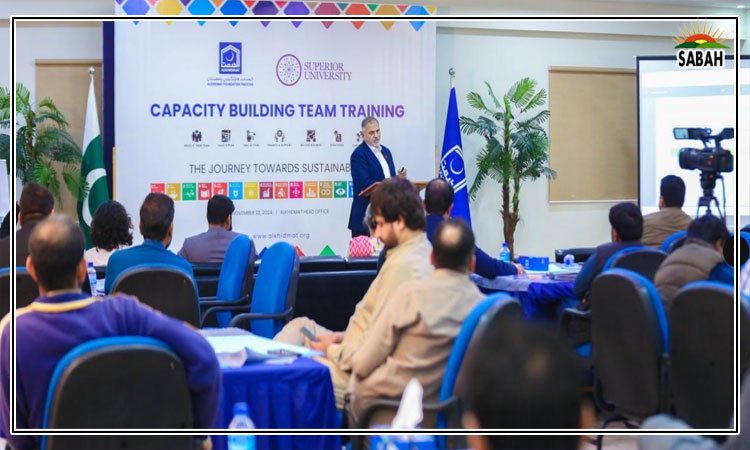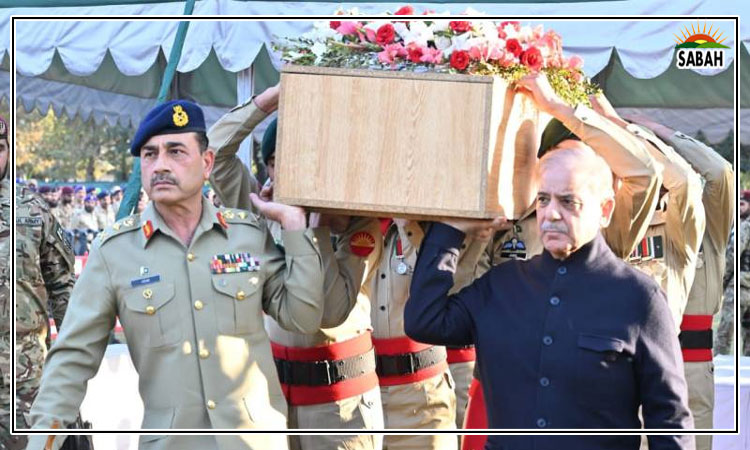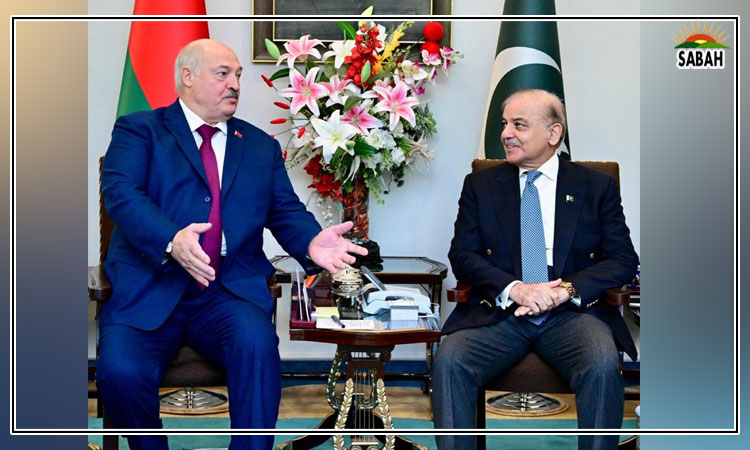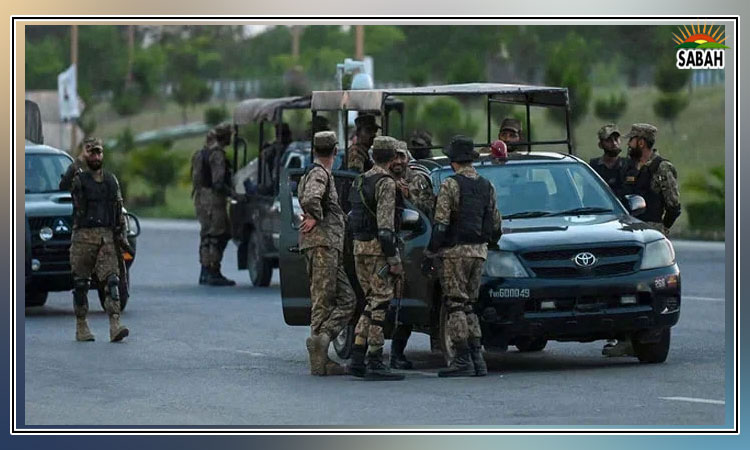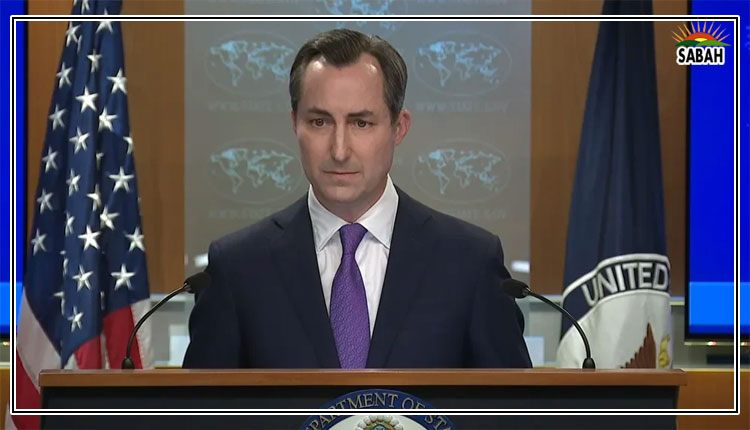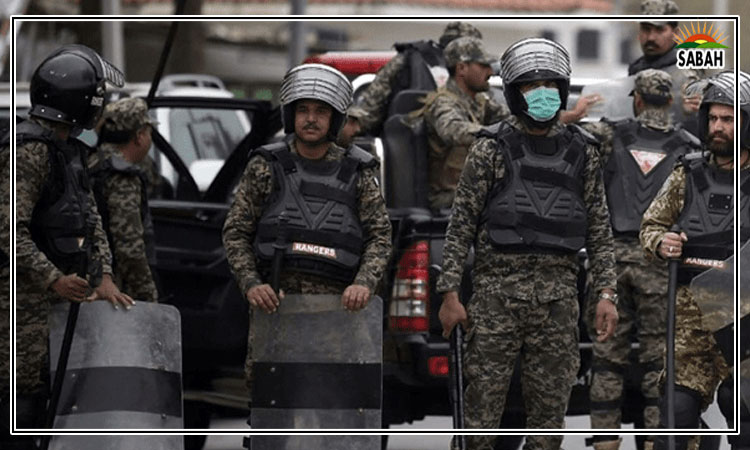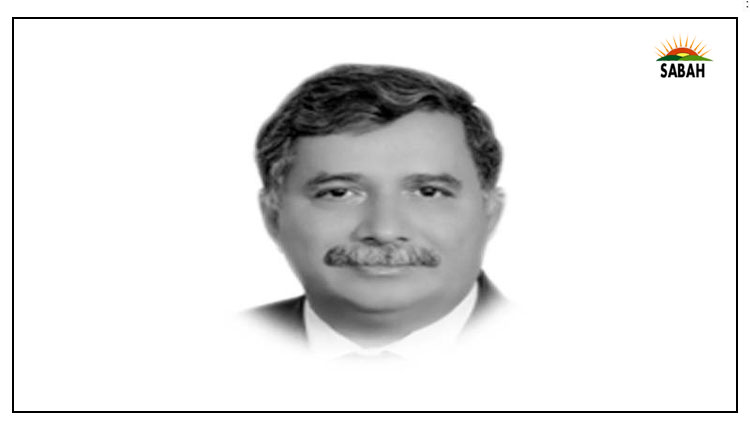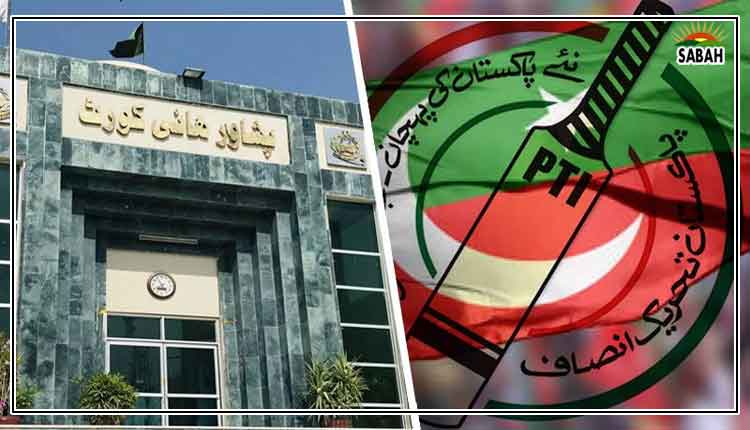Peshawar High Court declares as unconstitutional ECP’s decision revoking PTI’s ‘bat’ electoral symbol & rejecting its intra-party polls
PESHAWAR/ISLAMABAD, Jan 10 (SABAH): In a major relief ahead of general elections, the Peshawar High Court (PHC) on Wednesday declared as unconstitutional the Election Commission of Pakistan’s decision revoking the PTI’s ‘bat’ electoral symbol and rejecting its intra-party polls.
The court also directed the electoral body to hand the PTI its iconic ‘bat’ electoral symbol back and upload the party’s certificate of internal elections on its website. “The PTI is entitled to ‘bat’ and should be given the same as its electoral symbol,” the PHC ruled.
The verdict, which was reserved earlier in the day, was announced by a two-member bench comprising Justice Ejaz Anwar and Justice Syed Arshad Ali on a petition jointly filed by PTI leader Barrister Gohar Ali Khan and six other leaders requesting the court to declare the ECP order as illegal and without jurisdiction.
On December 22, the Election Commission of Pakistan had decided against letting PTI retain its electoral symbol for the February 8 election, saying that it had failed to hold intra-party polls in accordance with its prevailing constitution and election laws.
The PTI had approached the PHC against the ECP order on Dec 26 and a single-member bench restored the electoral symbol of the party till January 9.
On Dec 30, the electoral watchdog had filed a review petition in the PHC, arguing that the court had overstepped its jurisdiction. Days later, in a major blow for the PTI, the high court had restored the ECP order, stripping the party of its symbol again.
Subsequently, the PTI moved the Supreme Court against the restoration of the ECP ruling. However, the party withdrew the appeal earlier on Wednesday as the matter was already being heard by the PHC.
At the outset of the hearing in the PHC, Advocate Naveed Akhtar, the counsel for Jehangir from Charsadda, stated that the matter was also fixed for hearing before the SC.
At this, Justice Anwar recalled that the PTI had said it would not pursue the matter there. Barrister Zafar also reassured the court about the same.
Here, Advocate Qazi Jawwad, the counsel for Yousaf Ali, stated that his client had served as the party’s district secretary general and wanted to contest the upcoming general elections but “was not given the chance”.
Justice Anwar observed that if the petitioner was challenging the PTI’s intra-party elections, he should have sought that the polls be held again but did not do so.
“If you were from the party, then you should have objected to revoking the party symbol but you did not do so,” the PHC judge noted. The lawyer responded by reiterating that his client was not given a chance to take part in the intra-party polls.
Jawwad argued that the PHC could only review provincial matters while the intra-party polls were held countrywide, to which Justice Anwar asked if the PTI should have approached all high courts. Justice Ali wondered why a case could not be filed in the high court if the elections were also held in Peshawar.
Jawwad said that the Lahore High Court had dismissed a petition, to which Justice Anwar replied that the LHC had said the matter was sub judice before the PHC, hence it could not interfere.
The judge asked if any intra-party polls had been held without an electoral symbol, to which Jawwad answered that there had been “non-party elections and even if parties were dissolved, new ones were created”. At this, Justice Anwar remarked that the said events had taken place during martial law.
The judge then inquired the counsel whether he thought the PTI should get its electoral symbol back, to which Jawwad said he “supported action according to the law”. He added that he wanted the intra-party polls to be held again.
At this point during the hearing, Tariq Afridi, the counsel for Shah Fahad, began presenting his arguments before the PHC.
He contended that the high court could not hear the matter as its jurisdiction had been stated in Article 199 (jurisdiction of high court) of the Constitution.
Fahad’s second counsel, Ahmed Farooq, also appeared before the court and said, “As soon as this party (PTI) was created, laadlapan (favouritism) began.” Justice Anwar then directed him to restrict his arguments to legal points.
Farooq argued that under the Elections Act 2017, it was not mandatory for a political party to get the same electoral symbol each time. “If two parties ask for the same symbol, then the ECP has the power” to decide, he contended.
The lawyer for petitioners Raja Tariq and Noureen Farooq, Mian Azizuddin, argued that after the PTI conducted intra-party polls, a certificate was not submitted to the ECP by an authorised person. He said his clients moved a petition against the intra-party polls, which was then sent to the ECP.
In his arguments, Akhtar, Jehangir’s counsel, said that his client had remained the district president and asserted that party officials were not appointed according to its constitution, which was necessary.
He said that the ECP was supposed to be provided with an updated list of office-bearers. “An electoral symbol is also given to a party according to its credibility,” he said, adding that it was important to keep in mind the party’s constitution and the rights of voters.
When the hearing resumed after a short break, Akhtar continued his arguments. Justice Ali asked if the ECP had imposed a fine for holding unconstitutional intra-party polls, to which the lawyer replied that the electoral watchdog had taken action under Section 215 (eligibility of party to obtain election symbol) of the Elections Act.
When the judge noted that the said law did not mention intra-party polls, Akhtar contended that the process “automatically came under Section 215” as the intra-party elections were to be held according to the Elections Act and the party constitution.
Upon the lawyer recalling that his client had sought the intra-party polls to be held again, Justice Anwar observed that that matter was closed as a timeframe of 20 days was given for the same.
When Akhtar said he wanted to present arguments on “how the intra-party polls were held”, Justice Anwar said he could not do so as other petitioners had not been heard on that aspect. The matter would be discussed on the basis of evidence, the judge observed.
The lawyer insisted that his client’s argument was “important” and that the intra-party polls were “unconstitutional”. “Everyone said whatever the [party] founder [and] chairman will say, will happen,” Akhtar said.
Justice Anwar remarked, “Here, all the parties are being run by the same people. There is only (PTI) and another party who are letting workers come to the forefront.”
Subsequently, the arguments of private parties in the case concluded, following which PTI lawyer Zafar again came to the rostrum to give his closing remarks.
He contended that the ECP’s decision to revoke the party’s electoral symbol could be challenged in any high court. However, polls were conducted in KP and PTI Secretary General Omar Ayub Khan also hailed from the region, he said. He further said that the PTI had also formed the government twice in KP.
He contended that it was not appropriate to say that the ECP’s orders could only be challenged in Islamabad, since that is where the commission’s office was located.
When Zafar wrapped up, the court asked the ECP lawyer whether he wished to make further submissions. Justice Ali pointed out that Section 215 of the Election Act did not make any mention of intra-party polls and asked the ECP how it came to the conclusion for issuing the order.
ECP counsel Sikandar Mohmand said that Section 215 was applicable only when there was jurisdiction, which the ECP had. “Therefore, the application has to be rejected,” he said.
“So you are saying that under Section 208, an election will happen but only according to a party’s constitution?” Justice Anwar asked. He also pointed out that according to the ECP, the PTI was not issued a show-cause notice.
Mohmand argued that the PTI was given one year to conduct intra-party polls. “Elections must be conducted according to the Election Act and the party’s constitution,” he asserted. He said that there was a fine for not conducting polls in a timely fashion but in this case they were also not held according to its constitution.
After hearing all the arguments, the court reserved the verdict, saying that it would be announced later on Wednesday.
Speaking to the media outside the PHC after the announcement of the verdict, PTI counsel Barrister Ali Zafar said: “Now, no one can stop PTI from winning these elections.” Hailing the decision, the PTI senator said PHC kept its tradition of announcing decisions as per law.
“Court has ordered to restore PTI’s bat symbol and upload intra-party polls results on its website immediately,” he added.
The court has annulled the decision to take away PTI’s electoral symbol. “It was a conspiracy against the PTI to deprive it of bat symbol,” said Barrister Zafar.
Speaking to the media outside the Supreme Court, PTI leader Barrister Gohar Ali Khan said that the case in the PHC was heard all day yesterday and the hearing had been adjourned till today. He said the PHC had stated that an order would be issued in the case today.
“Keeping this in mind, the petition we had filed in the SC against the [PHC’s] interim order became infructuous […]. Because the verdict in the main case is expected at any time today […] we have withdrawn the plea from the SC,” Gohar said.
He said that the PHC would issue the final verdict, saying, “We hope that the verdict will be based on justice and rights and that we will get the ‘bat’ symbol.”
As the PTI withdrew its petition before the SC, Akbar Sher Babar, the party’s estranged founding member, lamented that the PHC had not issued notices to “five important respondents”.
Speaking outside the apex court, Babar said the parties would have presented evidence before the PHC of the “PTI’s fake intra-party polls” if they had been made respondents in the case, recalling that 14 petitioners did the same before the SC.
He asserted that the ECP had “full authority” to make decisions regarding political parties and that the electoral watchdog was “being prevented from fulfilling its duties instead of being strengthened”.
Babar said petitions were being filed before multiple high courts against the ECP and the “PTI leaders had been robbed of their rights” due to the “fake intra-party polls held in a closed room”.
He further said the PTI lawyers were considering the election commission a “post office” and asserted that there should be no interference in its functions.
“If we do not get justice, we will approach the Supreme Court,” Babar vowed, adding that there were documents stating that he was a PTI member. “If they want action against me, they may file a petition in court.
He continued: “If the oppressor commits oppression, he is also oppressed. For three years, they did injustice. Now, the same is happening with them.”
Babar recalled that those protesting a day ago in Islamabad against the “sale of party’s tickets” were also PTI workers.



